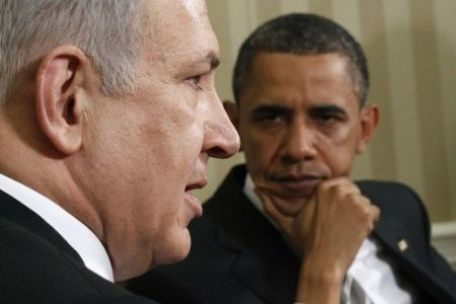Time for Innovative Diplomacy

As the world witnesses Israel’s latest media salvo against Iran, one cannot but wonder whether Tel Aviv is aware of the consequences of a military face-off.
Since mid-September, Israel’s Foreign Ministry has switched to a hyperactive mode, trying to convince Barack Obama and other Western leaders that the window to impose more stringent sanctions against Iran is gradually closing, and drafting a new set of sanctions to stop an allegedly weaponized nuclear program pursued by Tehran is of high priority.
The IAEA’s latest report on Iran’s nuclear program, which had been the subject of speculation for a long time, has proved utterly mis-oriented in focus by probing the so-called ‘military’ dimension of Iran’s nuclear program-- interestingly, it has coincided with the new wave of hostile propaganda urging a military attack on Iran. As the keywords ‘Britain’ and ‘strike’ oddly appear in the news, one cannot but ask if Tehran’s long-time enemies are laying the groundwork for a military operation.
Apparently, Israeli officials are displeased that the “Arab Spring” and the Palestinians’ statehood bid have diverted attention from Iran’s nuclear program. For Tel Aviv, the presumed “Iran threat” should be as embossed as ever, and what could serve that cause better than beating the drums of war on Iran?
How should Tehran respond to the new situation? So far, Iran’s diplomacy towards the recent diplomatic developments has been inept and lacking substance. A simple denial of accusations, summoning the Swiss Ambassador to the Foreign Ministry and slamming Washington -though necessary measures- are not adequate at all, and are simply outshined by Washington and Co.’s complex, coordinated operation. The present situation calls for taking the following steps:
1. As to the nuclear program, Iran should re-announce its readiness to negotiate with the Five plus One, contemplate Russia’s “Step-by-Step” plan, and come up with a Iran-Russia joint initiative. The nuclear file is now in a critical phase: with a maladroit move, Iran could either lose the propaganda battle or it will provide the warmongers with an excuse to attack the country.
2. Innovation is a diplomatic imperative. On the story of the alleged assassination plot against the Saudi Ambassador to Washington, the Iranian diplomatic apparatus’ initial reaction was actually non-existent until Ayatollah Khamenei denied the accusation. In the meantime, propaganda does not suffice if we want to offset the US’ efforts. Innovative regional and international diplomacy are complementary. Dialog with Riyadh in order to remove any suspicion is necessary at this juncture. Iran and Saudi Arabia are neighbors, each with legitimate regional interests which have to be respected. If the two countries fail to discuss bilateral ties through direct contact, others will determine the course of their relations.
3. This is the first time we hear voices from London suggesting direct military action against Iran. British diplomats in Tehran, and their bosses in London, need a briefing session to understand that if they intend to join the pro-military action camp, they cannot continue normal political and economic ties with Iran. If not clarified on the issue, the British may tempt other countries to join them.
4. There is no need to stress that military preparedness to counter any likely aggression is a must. While we should stay reserved against the military ballyhoo, we should also not downplay the machinations. Warmongers in Washington are ready to plunge the Middle East into chaos, even if that means inflicting casualties and economic damage on the United States. Washington and Tel Aviv are of course cognizant of the fact that a collision with Iran is just like playing with fire, and it will definitely cause sleeplessness for the Israeli Interior Minister Eli Yishai.
De-escalating tensions with neighbors should be placed atop our diplomatic agenda at the moment. Iran’s relations with Turkey, a prominent regional actor, should return to the pre-“Arab Spring” state. A regional forum should be held with the participation of Iran, Iraq and all other Persian Gulf littoral states in order to draft a plan that can bring security and stability to the region.

